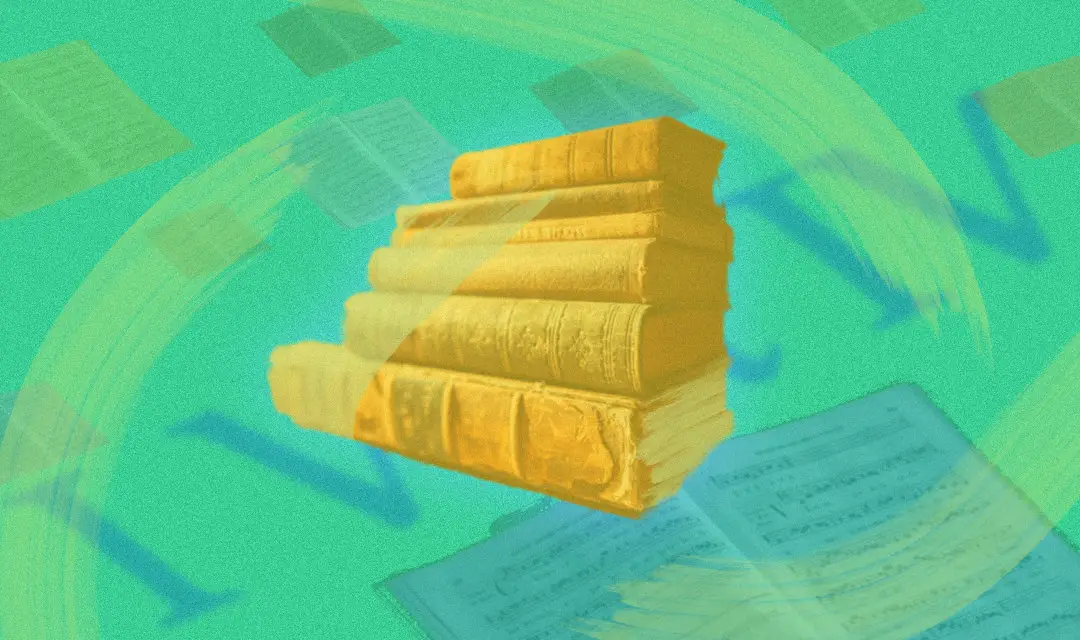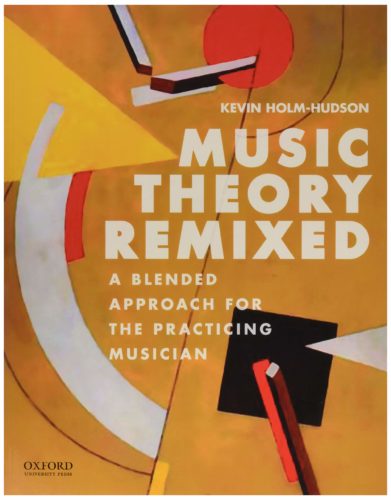Diving into a new area of study can be daunting because you don’t know where to start, or you have too much material to cover. That is the case with learning the basics of music theory.
Don’t worry though, understanding the basics of music theory is pretty straightforward, but the difficulty is knowing it well enough so you don’t have to think about it — that’s the trick.
I am going to recommend some books that will be great for music theory novices and others that will dive deeper into more advanced concepts. These are some of the best music theory books, you will not get stuck learning music theory the wrong way.
Music Theory Books For Beginners
Diving into a new area of study can be daunting because you don’t know where to start, or you have too much material to cover. That is the case with learning the basics of music theory.
You need to have a good working knowledge that you can remember — actually, it’s better if you don’t have to remember and can just use it without thinking, but that comes with time — and access the theory quickly when you want to use it in your jam sessions or songwriting.
These books will help you with that.
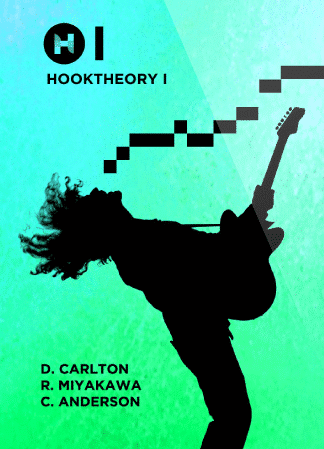
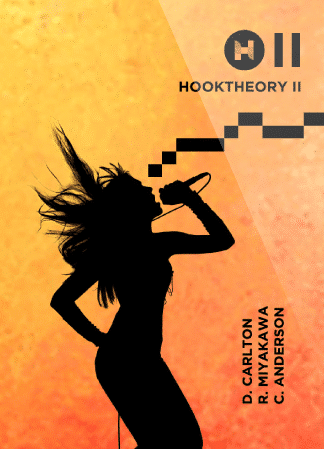
Hooktheory Books
If you are just getting started trying to learn music theory or coming in with experience with an instrument that doesn’t require reading sheet music, then you have probably encountered how slow it can be to use standard notion to find harmonic relationship. Just look at the following example.

Which is easier to understand?
With standard notation, the process would be something like this before you understand it:
- Learn the notes of the staff
- Reference or memorize the notes in the chords
- Find the Key
- Scribble notes in the book so you don’t forget what the previous chord was
- Then finally work on understanding what is happening harmonically.
While that can easily be learned with some practice and you may even know how to do those steps already, but do you think you are fast enough to be efficient when you are given dozens of examples of classical music in a standard music theory textbook?
Hooktheory Books take the standard notation out of the equation and teach you using relative notation, which most modern professional songwriters use. So why shouldn’t you?
They have created a modern solution to learning music theory that isn’t bogged down like the more traditional music theory textbooks. It contains audiovisual examples of modern songs to help the modern songwriter or producer advance their songwriting skills. At the fraction of the cost of a college music theory textbook. These books work great in combination with their songwriting software, Hookpad.
Here is a small preview of the content and interactive exercises:
Here are some other benefits:
- Every concept is demonstrated through a real song (modern)
- 315 audiovisual examples
- 124 exercise to help reinforce learning
- Design to be used with Hookpad
I believe this is one of the best music theory books for producers and novice songwriters.
Music Theory Remixed: A Blended Approach for the Practicing Musician
This is a great book that goes over all of the typical concepts of a four-semester university music theory course from Theory I to Theory IV. The major difference between this book and some of the other major music theory textbooks, Tonal Harmony & The Complete Musician, is that it supplements the classical music examples with modern music such as pop and other genres.
In Music Theory Remixed, can hear modern examples of cadences, and modulation techniques along with examples from the classics. It brings a bit of both worlds to bring music theory together in a more interesting way.
This book is often used in the classroom, but it is perfect for individual study as has practice questions after each chapter and provides free access to check your answer online. Most other books only give a few selected answers in the back of the book.
This book is a refreshing approach to learning music and utilizing music samples across multiple genres. This will be a good companion as you journey through learning music theory from the beginner stages all the way to the advanced. It will take some serious work nevertheless!
Honorable Mentions
Intermediate and Advanced Music Theory Books
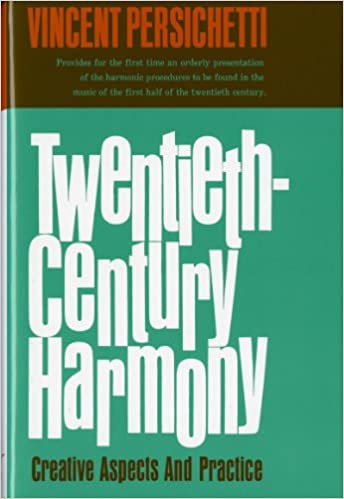
Twentieth-Century Harmony: Creative Aspects and Practice
Once you have the basics of music theory Twentieth Century Harmonydown, I would highly recommend the book ’20th Century Harmony: Creative Aspects and Practice’ by Vincent Persichetti.
While it does start off with the basics intervals and harmonic series, it works its way quickly to talk about dynamics chords, embellishing tones, and understanding key centers in modal music.
The end of each chapter has a few exercises of music composition practice to real drive home the concepts. You might find the exercises challenging if you don’t have much experience composing.
Persichetti is for sure the kind of thing you can read if you have the basics down from just learning an instrument properly. It starts from the absolute fundamentals – intervals and the harmonic series – and works up from there. You might find some of the composition exercises a bit challenging if you don’t have much composing experience but I think you’ll be fine reading it.
The ideas found in this book challenge almost all other textbooks on music theory. This is the first paragraph of Chapter 1:
Any tone can succeed any other tone, any tone can sound simultaneously with any other tone or tones, and any group of tones can be followed by any group of tones, just as any degree of tension or nuance can occur in any medium under any kind of stress or duration. Successful projection will depend upon the contextual and formal conditions that prevail, and upon the skill and the soul of the composer.
If you come from a classical music background or studied music in college, you know that that paragraph goes totally against the norms taught in college curriculum and books such as Tonal Harmony and The Complete Musician.
This books lays out very complicated topics in a simple and straight ford language. He uses emotive words to describe compositional examples instead of dull academic language. If you want to delve deeper into harmonic concepts and happen to be a self-learner. This would be the perfect book for you.
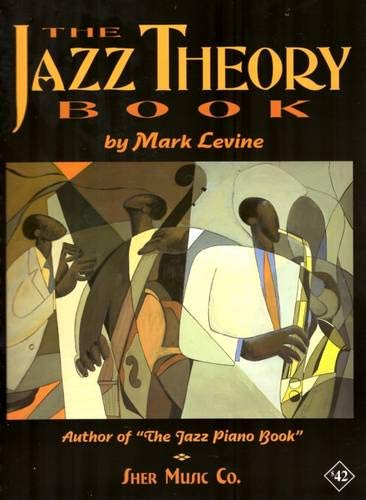
The Jazz Theory Book (Mark Levine)
This is one of the standard books that you will see people recommend if you want to get more into playing jazz music – It is basically the Bible of Jazz learning/reference books.
There are a few caveats though. The Jazz Theory Book isn’t an introductory book. You should have a fairly good grounding in the fundamentals of music theory before picking this books up.
However, the first part of the book does review chords and talks about chord – scale theory, major scales, II-V-1 progression, and slash chords.
After that you start getting into the meat of the book, and probably why you are interested in jazz — improvisation.
One of my favorite parts in this section is the chapter on how to make it musician, which is basically explaining how to take those scales and actually start to make it sound musical and not like you are doing scale exercises.
The rest of the book goes farther into reharmonization and other advanced music theory, which is still over my head to be honest.
There is also great information how to learn and memorize jazz tunes and starts to dabble in other sub-genres of jazz.
Honestly, I found the first section most useful to me because I found it explained in a unique way compared to other modern music theory textbooks.
The material contained in this book will probably take almost a lifetime of study which shows how much value it can provide on your journey to learning music theory.
SIDE NOTE: I know a lot of guitarist that use this book as well, however just before you pick it up, you should no that there are not any tabs. It uses standard notion, sheet music, to explain concepts. So before you pick this book up as a guitarist, you might want to check out some of the Hal Leonard or Berklee books on reading sheet music as a guitarist.
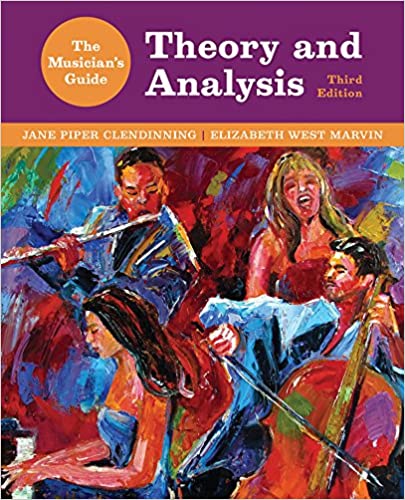
The Musician’s Guide to Theory and Analysis
Many colleges use this book and other other books in this series as their undergraduate courses, but most interestingly, this books is one of the most recommended music theory books for self-study.
The language is much easier to understand and it is laid out in a very logical manner.
As with all of the other books the first half will cover many of the music theory fundamentals such as intervals, triads, rhythm, and chords. It quickly goes into more advanced concepts and analysis and how to understand form and progressions.
I found the chapter on using embellishing tones and how to modulate to other keys very helpful.
You can purchase the workbook along with this book to help cement this information — I would highly recommend purchasing the workbook and actually doing the exercises in the book and on your instrument.
I would recommend getting a used 2nd edition book with the workbook. You can get it for a fraction of the cost of the latest edition.
How to pick a music theory book for you
I would recommend at least looking at the table of contents on the book preview on Amazon before buying a textbook. Also, a university library may have these textbooks in their collection, so you could browse them before buying. Try reading the prose—is the way they’re explaining things clear to you? Can you honestly see yourself digesting this information, or is it too dense for you? Are the musical examples clear?
I would also consider buying the workbook and anthology that go along with many of these books, so that you can get the most out of your text.
Conclusion
I hope some of these recommendations helped you make a decision on what book to get.
Most of these books are used in 4-year undergraduate college courses. So don’t think you need to rush through them when music majors are taking years to study the book.
Progress in music theory can feel slow, but it is something that you need to ingrain so that you don’t have to think about it when you are making music. That is why you should actually try to use this music theory that you are learning in your songwriting.
Music theory in combination with these songwriting tools can help your creativity and get your ideas down faster.
If you have any other recommendation, drop them in a comment below.
